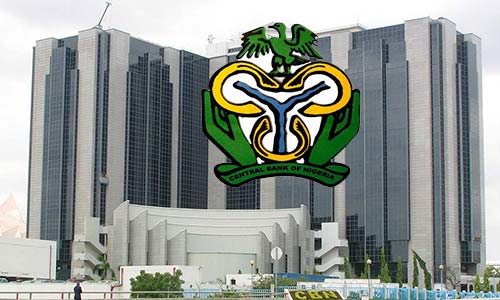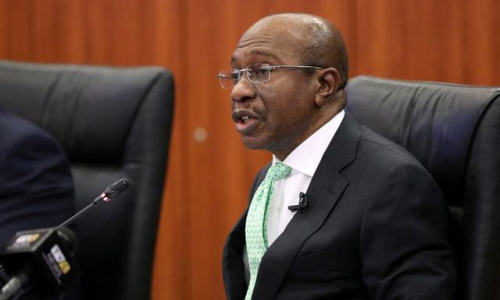Banking and Finance 30/08/2023
Banks’ Borrowing From CBN Rises By 79% In 8 Months

Nigerian banks’ borrowing from the Central Bank of Nigeria (CBN) hit N12 trillion in eight months, indicating a whopping 75 per cent increase, pointing to a liquidity challenge for many of them.
Data from the CBN showed that banks borrowed a total of N12.46 trillion from the apex bank from January to August this year.
This amount indicates a year-on-year increase of 79 per cent when compared with the N6.96 trillion recorded in the first eight months of 2022.
The spate of intensified borrowing by merchant and commercial banks from the CBN has indicated an increasing reliance on the apex bank for liquidity.
This increased borrowing which dominated the first months of the year was traced to the CBN’s new Naira note policy, a development that created a cash crunch in the economy.
Banks make use of two windows to either access funds or make deposits with the CBN. The Standing Lending Facility (SLF) window is used by banks to access liquidity to run their day-to-day business operations while the Standing Deposit Facility window (SDF) is used to deposit cash with the apex bank. The steady increase in banks’ borrowings from the SLF reflects the increase in currency outside banks and currency in circulation (CIC) in the economy. In the first five months of 2023, the borrowing from the CBN intensified as it recorded N7.5 trillion, an increase of 276 per cent from N1.99 trillion reported in the first five months of 2022. The figure further increased in the first six months (H1) to N10.25 trillion, representing an increase of 138 per cent Year-on-Year (YoY) from N4.3 trillion borrowed during the corresponding period of H1 2022.
A month by month breakdown of the figures borrowed from the CBN in 2023 revealed the sum of N528.16 billion was supplied to banks in January. The figure dropped to N453.7 billion in February 2023. There was a significant increase In March as the figure rose by 776.22 per cent to N3.98 trillion. In April 2023, the sum of N4.47 trillion was borrowed by banks from the CBN. For May and June 2023, the sum of N590.29 billion and N235.06 billion was recorded respectively, as the amount borrowed by the banks from the CBN while the figure stood at N908.43 billion in July and N1.3 trillion in August. From the above analysis, the month that recorded the highest borrowing by banks was April with N4.47 trillion, followed by March which recorded an SLF figure of N3.98 trillion.
Meanwhile, the banking industry’s loan book rose by 27% in the 2022 financial year, spurred by increased activities at the differentiated cash reserve requirement (D-CRR) window, higher deposit base and naira devaluation.
Agusto & Co, in its ‘2023 Nigerian Banking Industry – A Resilient Industry Navigating a Volatile Operating Terrain’ report, notes that banks have backed this growth with additional investment in credit risk management and capital raising exercises.
Following the inauguration of President Tinubu, it says, the new administration has implemented several reforms aimed at reversing prevailing macroeconomic imbalances. Agusto & Co. believes that the reforms including the removal of the petrol subsidy, exchange rate harmonisation, tax reforms and restoration of a methodological framework for calculating the cash reserve requirements (CRR) provide growth opportunities for the industry.
For instance, we believe many banks will take advantage of rising liquidity following the eradication of arbitrary CRR debits to grow the loan book, especially, since the working capital needs of businesses continue to rise given the weakening domestic currency and other inflationary pressures, it says.
Agusto & Co expects that new loan disbursements will largely flow to traditional sectors including manufacturing, oil and gas and general commerce amongst others and resilient players given the volatile operating terrain, adding that, nascent sectors such as renewable energy, health and gender-based businesses will also continue to gain.
According to Agusto & Co, “Nevertheless, some pressures in asset quality are expected, considering the lower consumer purchasing power and dwindling margins of some industries. However, the non-performing loan ratio of the Industry is expected to remain below 5% as at FYE 2023 as many banks leverage their past experiences from recessions and the pandemic to navigate this stressed cycle.”
Agusto & Co.’s expectation for performance by the Nigerian banking industry is positive. “With the reversal to normalcy with respect to CRR debits and foreign currency illiquidity, many banks have witnessed a rise in available funding for risk asset creation and we believe this would be exploited to boost interest income and ancillary earnings through the treasury function,” it notes.
Given the industry’s net foreign currency asset position, Agusto & Co. believes the banking industry is also poised to benefit significantly from the massive naira depreciation that followed the move to harmonise the various exchange windows, reporting significant foreign exchange gains.
Overall, Agusto & Co. anticipates a 520 basis points increase in the return on equity to 26.8%, however, the industry is not entirely insulated from the vagaries of the Nigerian economy and we expect inflationary pressures to bloat operating expenses in the near term.
The persistent naira devaluation and heightened credit risk environment, it says, have adversely impacted the Industry’s capitalisation position, while expecting these pressures to be accentuated by the ongoing macroeconomic reforms, particularly the naira devaluation.
However, the ongoing recapitalisation exercise by some banks as well as the planned retention of profits, it says, will moderate the impact.
Agusto & Co. notes the initiatives by banks with negative equity to resolve the challenge before December 2023. As a result, we expect the Industry’s capital adequacy ratio to improve to 19.2 per cent as at FYE 2023.
“As the competitive landscape is changing the holding company structure is gaining more prominence with banks seeking to diversify into new businesses such as pension and asset management while responding to the disruption by FinTech companies, we expect more banks to go the HoldCo route as the competitive landscape changes,” it points out.
Overall, Agusto & Co.’s financial projection for the Nigerian banking industry is generally positive, however, it recognises that the industry will face emerging risks from policy reforms and the ability to respond swiftly will determine the winners and the losers.


